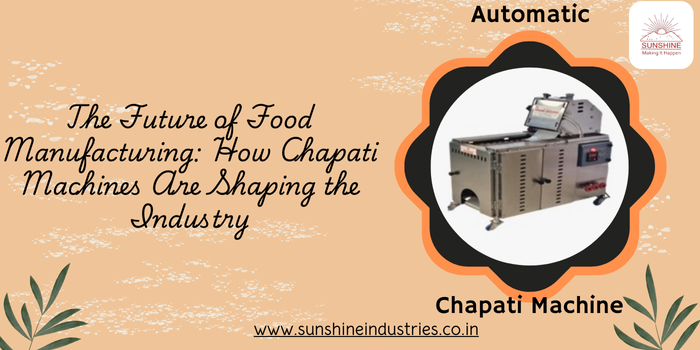
The Future of Food Manufacturing: How Chapati Machines Are Shaping the Industry
Advancements in chapati machine technology are revolutionizing food production, particularly for businesses catering to high volumes of customers. As demand for authentic and high-quality Indian cuisine grows globally, chapati machines are becoming increasingly crucial in commercial kitchens, and catering services. These innovations promise to enhance efficiency, reduce operational costs, and improve consistency, fundamentally shaping the future of food catering service.
One of the most significant developments in chapati machine technology is the enhancement of automation. Modern machines now offer features like automatic dough mixing, consistent rolling, and even baking. This high level of automation not only speeds up production but also ensures that every chapati is of uniform size and quality. This consistency is crucial for businesses serving a high volume of customers, where product uniformity is key to maintaining customer satisfaction.
Another major advancement is the ability of chapati machines to handle diverse types of dough, from whole wheat to gluten-free and specialty flours. With more customers seeking healthier and customized options, businesses can now cater to these demands with ease. The flexibility in dough handling also means businesses can expand their product offerings without investing in multiple types of equipment, making chapati machines a versatile solution.
Additionally, innovations in energy efficiency are making these machines more environmentally friendly and cost-effective. The latest chapati machines are designed to use less electricity while still providing fast and consistent output. This reduction in energy consumption can significantly lower operational costs for businesses, particularly in large-scale food production settings. When considering the chapati machine cost, businesses can evaluate long-term savings in energy, labor, and waste reduction, making it a sound investment in the long run.
As food businesses strive to meet the demands of fast-paced, high-volume environments, chapati machines will remain at the forefront of food manufacturing, offering scalable, cost-effective, and high-quality solutions to meet customer needs.
In conclusion, as advancements in chapati machine technology continue, the future of food manufacturing looks bright. Businesses that embrace these innovations will be able to scale efficiently, meet changing consumer preferences, and lower costs, ensuring they remain competitive in an ever-evolving industry.

